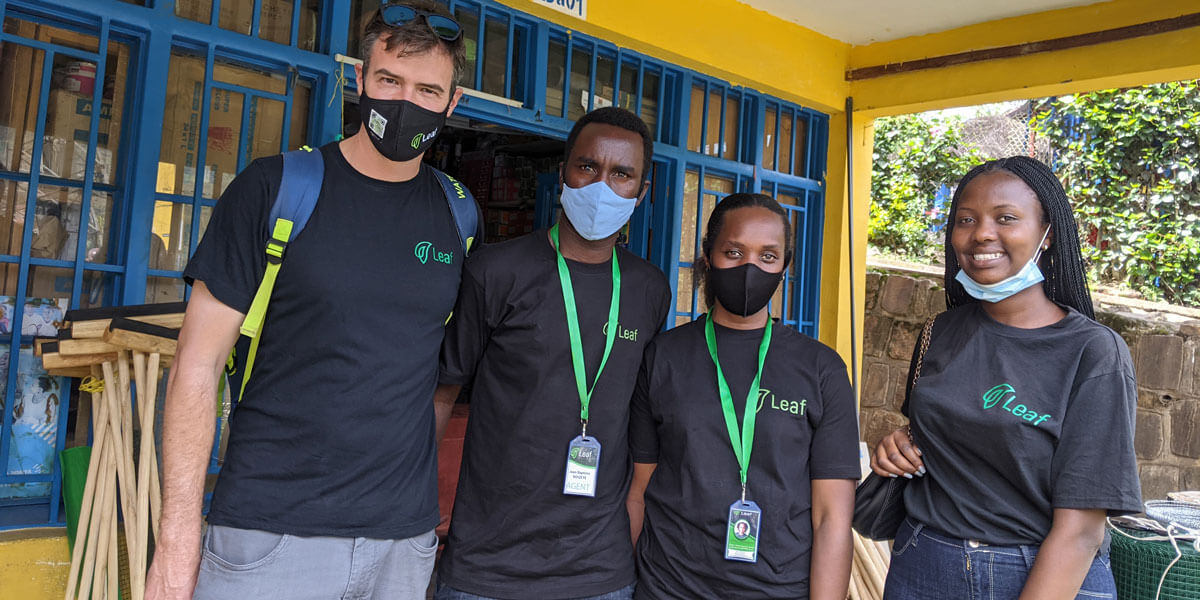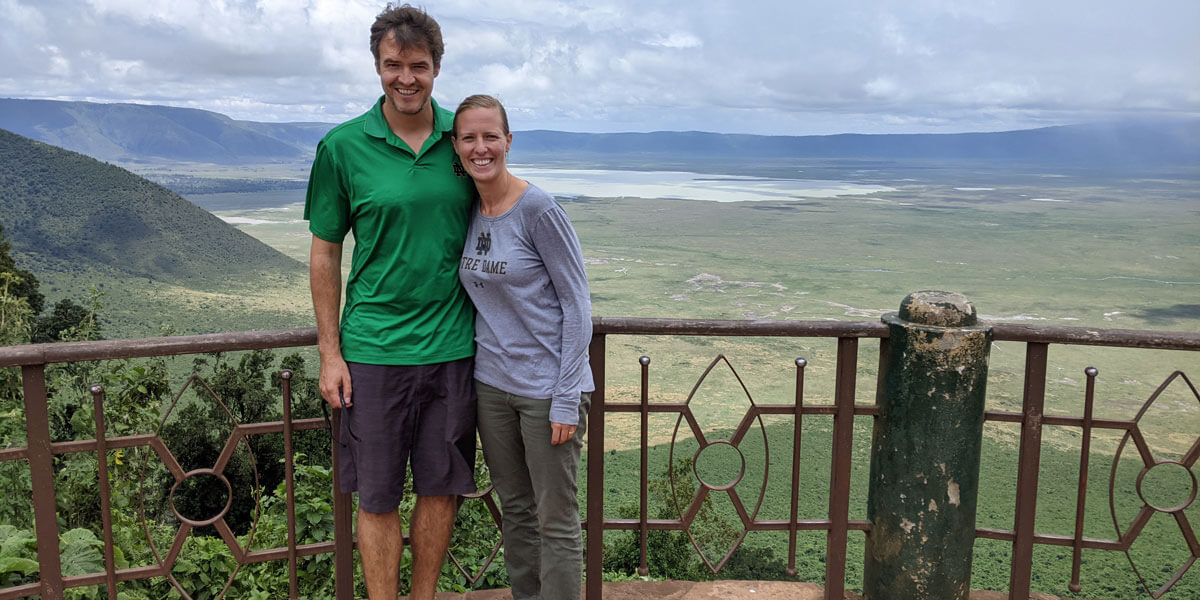When it comes to the world’s biggest, most complex, and heart-wrenching problems, Nat Robinson ’99 can’t seem to stay away.
“Maybe I’m a glutton for punishment. It seems that, once I gain success with one project, I often leave to start something new and difficult,” Robinson says. For instance, he founded the Juhudi Kilimo company, which, in 6 years, provided $30 million in microloans to help lift rural Kenyan farmers out of poverty—and then he left for law school at Vanderbilt University, before starting a new social enterprise venture.
The financial technology business expert chalks up his tenacious do-gooder habits to lessons he learned at Colorado Academy.
“I like hard problems,” says the Evergreen native. “I think it connects to what I learned at CA about our responsibility to contribute to society. If I’m going to try to solve world problems, I might as well focus my energy on the hard ones.”
When to be flexible and hope for the best
If you commit to solving the world’s hardest problems, you’re probably going to find yourself traveling to some of the world’s hardest places. Robinson has traveled to over 60 countries on six different continents, including many impoverished areas in economically developing nations.
At the time of this story, he was working in Rwanda, had just spent time in Tanzania, and could be off to another country soon.
His aim is not only to generate revenue and growth, like any for-profit operation, but also to influence social change. He spends time in urban field offices, at rural work sites, and everywhere in between, creating fintech solutions that help people rise out of poverty.
His very first international trip came on a CA Eighth Grade trip to Europe. Building on that experience, he participated in Semester at Sea during his junior year at Colorado College. While he was on that 10-country, round-the-world cruise ship voyage, two planes crashed into the twin towers of the World Trade Center.
After September 11, 2001, his group’s travel itinerary changed six different times. The students witnessed anti-American protests in India. They returned home to new scenes of heightened security, including heavily armed airport guards. And at the end of it all, Robinson felt a new and powerful confidence in his ability to travel the world.
“I learned to be flexible and hope for the best,” he says. “It was a phenomenal, life-changing experience and the driving force for my international work ever since.”

How to run a business in a pandemic
For many people, a typical day looks a lot different now than it did before the COVID-19 pandemic. For Robinson, there hadn’t been a “typical day” in his life for more than a decade.
In his work—building profitable operations and driving social change in emerging markets all over the world—every day brings something new. Of course, the pandemic took that to a new level.
As co-founder and CEO of Leaf Global Fintech—a Techstars company that has received awards from the Vatican, United Nations, and South by Southwest—Robinson had been working before the pandemic to develop a digital wallet product to help refugees in five African countries move themselves and their assets across conflict-plagued international borders.
By late 2019, Leaf had solid investor commitments and work planned in Rwanda, Uganda, and Kenya. Robinson had plans to spend the next year in East Africa, launching the new blockchain business venture. Then, COVID-19 hit. National borders started closing, and it became hard to justify the work to investors.
“COVID’s been hard for everyone, but it’s a really tough time to find capital and start a business,” he says. “Initially, our investors were still committed, but a couple weeks into the pandemic, everything changed.”
Robinson needed to apply the flexibility and adaptability that he’d learned years ago while traveling to foreign countries in the days and weeks immediately after 9/11.
He and his team secured research and development grants from the National Science Foundation’s Small Business Innovation Research program and the State of Colorado’s Office of Economic Development and International Trade. They leveraged the increased demand for digital currency that emerged, as the threat of viral infection made exchanging cash less popular. Robinson managed his international team through phone and Zoom calls, instead of meeting with them on site at refugee camps.
Despite the pandemic, the company managed not only to survive, but grow, and retain every single staff member.
The rare gift of CA
Nat Robinson has spent so much time working in Africa that he could write a book about it. And it turns out, he did: Creating a Cash Cow in Kenya: Adventures in Starting a Social Business and Living in Africa.
He feels grateful for the Tattered Cover book talks and other promotional events that CA helped organize when the book was published in 2016.
“The support that CA gave me was so amazing,” says Robinson, who attended CA from Sixth to Twelfth Grade. “It was nice to reconnect with students and faculty and speak to students. I loved all those opportunities.”
He also hasn’t forgotten the opportunities he had as a student at CA, especially those outside the classroom, where he learned best: the marine biology program in Key West during Interim, the many seasons on the Lacrosse and Golf Teams, the experience managing the Girls Soccer Team when they won the State Championship, the holiday choir performances downtown in Larimer Square—even though he’s a “terrible singer.”
“CA was such a great foundation academically and socially,” he says. “It helped me to build confidence in trying new things, to not be afraid of failing, and to be able to accept challenges.”
Robinson remembers “great friends and fantastic faculty at CA, everyone so caring and supportive.”
“As I went to bigger programs in college and grad school,” he says, “I realized how rare that is.”
